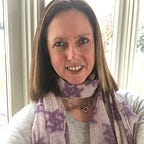Book Review: The Naked Don’t Fear the Water
In The Naked Don’t Fear the Water, Matthieu Aikins explores mass migration and the concept of borders by contrasting the ease by which he is able to travel, passport in hand, with the experience of his friend Omar as a refugee fleeing Afghanistan. It’s an unforgettable story leaving the reader reeling at the injustices plaguing global migration.
The book is set in 2016 during the surge of refugees, largely from from Syria and Afghanistan, making their way across the Mediterranean in inflatable dinghies. That year, the total number of displaced people rose to 65.6 million, including 22.5 million refugees.
Unfortunately, the scale of the crisis has not let up and by the end of 2021, the number of people displaced had increased to 89.3 million, 27.1 million of them refugees, according to UNHCR’s Global Trends report, released on June 16. Initial estimates suggests that the total number of displaced people could ramp up even further this year — to 100 million — as a result of the war in Ukraine.
The distinction between a refugee and an internally displaced person (IDP) may seem pedantic given that any person fleeing home has the same needs for food, shelter, clothing, and for children, school. Yet there is a crucial distinction in international law: by crossing a border an individual becomes a refugee, and has the right to protection by the international community.
IDPs, on the other hand, who have fled their homes but remain within national borders, are theoretically the responsibility of their home government though they also have a right to humanitarian assistance and aid.
Aikins reflects that the definition of a refugee in the 1951 Geneva Convention is based on the politics of the post-WW2 era. A refugee, it says, is someone fleeing persecution for race, religion, nationality, membership of a particular social group or political opinion — a definition which fits communist dissidents, not necessarily someone fleeing conflict by armed groups, civil war or proxy battles.
This is not a theoretical consideration as interviewers must determine whether someone has a “legitimate” claim to refugee status; a farmer no longer able to grow food due to conflict, suddenly becomes an economic migrant, and does not qualify for refugee status based on this limited definition.
To fully understand what it means to be a refugee, Aikins decides to become one himself, accompanying his friend Omar from Afghanistan to Europe, and showing how, ironically, refugees have to put themselves in life-threatening situations to reach safety.
“Once we started there would be no turning back, not without abandoning my friend. Because we might be searched, I’d have to leave behind the American and Canadian passports that allowed me to move so easily through this world full of borders. And yet it wasn’t just checkpoints and fences that governed our movements; there were laws and webs of surveillance and more intangible lines drawn by self-interest — the tracks our lives ran on, the limits to our imagination.”
In 2016, I watched the drama of refugees’ precarious journeys on TV yet it was hard to understand the depth and complexity of the experience, something that Aikins lays out in describing Omar’s motivations for leaving home, his emotional struggles, logistics and costs, and the risk calculation when determining which smuggler to trust, or the mode of transportation to use.
Attempting to enter Europe’s closed borders, Omar prevaricates between two less than ideal options: escaping Greece in the back of a truck as a stowaway, risking suffocation, or using a fake ID to fly into Europe, risking jail.
And Aikins documents smaller indignities in the refugee camp: the lack of security, insufficient food, long lineups for meals, and the insalubrious fact that there were just nineteen toilets for several thousand men. Living in the refugee camp in Greece was so awful that Aikins grimly notes, “In Moria, rising from a nightmare meant waking to something worse.”
But the problem goes deeper than the conditions at the refugee camp as at its root is the flawed system that compels people to risk so much for the chance of a better and safer life filled with hope for the future.
Reinforcing the already impressive research and attention to minute details, The Naked Don’t Fear the Water includes quotes from philosophers, poets, writers, academics or politicians showing not only Aikins’ own deep understanding of migration, but also providing the reader with multiple layers of what it means to exist as a refugee.
Not far from the modern-day site of the refugee camp, the ancient philosopher Aristotle reflected that “we were all connected in a great chain of being.” Aristotle was referring to the human connection which existed then and continues to exist now, yet in some ways, our globalized world makes it is even more true today.
And that brings us to the question of borders. The global movement of people will continue to increase driven by insecurity and a growing awareness of the dichotomy between haves and have nots, through easily viewed posts on Facebook or YouTube. In starker economic terminology, the desire to smooth consumption patterns will only grow. The resulting pressure on borders will either increase as countries struggle to keep people out, or they can become more malleable and recognize the common humanity we all share — regardless of place of birth.
There are no easy answers. But what is clear is that the movement of people across borders is here to stay, and global leaders and citizens of have countries owe it to humanity to show compassion. That means finding solutions and breaking down barriers, rather than building taller walls.
